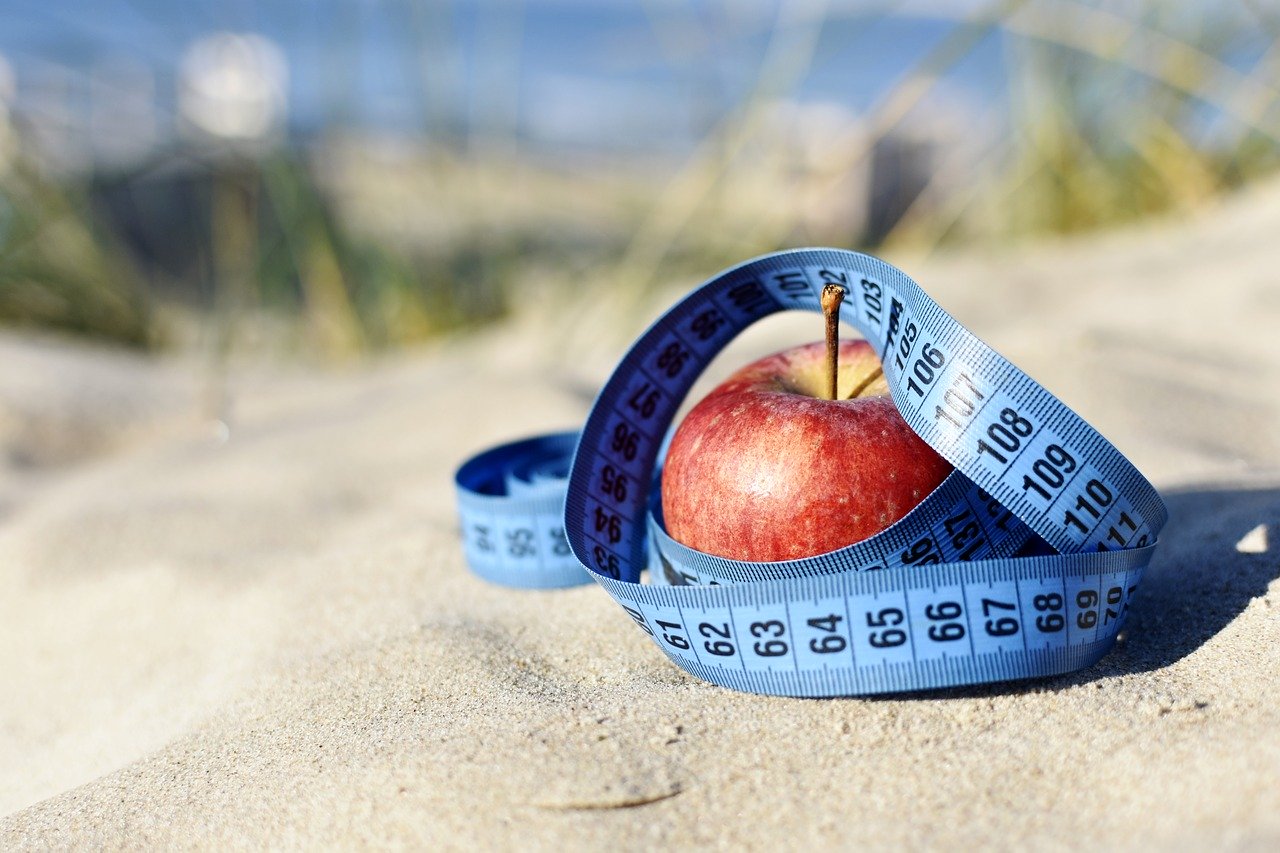Many women start to gain weight during their 40’s despite eating and exercising the same as they always have. It also tends to be stored around the middle, giving an ‘apple’ shape to the body rather than the ‘hourglass’ shape we may have been used to. What is the natural reaction to this? To eat less calories and exercise more, but it doesn’t work.
WHY? In this article, I want to help you understand the ‘why’ and offer some tips on how to avoid it.
Hormones
The hormonal changes of menopause might make you more likely to gain weight around your abdomen than around your hips and thighs. But, hormonal changes alone don’t necessarily cause menopause weight gain. Instead, the weight gain is usually related to ageing, as well as lifestyle and genetic factors
Metabolism
Muscle mass typically diminishes with age, while fat increases. Losing muscle mass slows the rate at which your body uses calories (metabolism). This can make it more challenging to maintain a healthy weight. If you continue to eat as you always have and don’t increase your muscle mass, you’re likely to gain weight. Added to that, as oestrogen drops this has an effect on the rate of protein synthesis and it becomes more difficult for your body to synthesize the protein you eat into the muscle that you need.
Insulin Sensitivity
Oestrogen and progesterone have an impact on some of the fat burning and fat storing hormones. Oestrogen makes the body more insulin sensitive so as oestrogen declines women become more insulin resistant; your body pumps out more insulin, which in turn triggers more fat storage. This puts you on the blood-sugar rollercoaster of surges and drops that can leave you fatigued and hungry all the time.
Cravings
For those of you who have been pregnant or got weird cravings during your periods, guess what? It’s related to hormones! In the brain we have gaba (neuro relaxing transmitter), dopamine (focussing brain chemical) and serotonin (self esteem and relaxing chemical) which all fall during your period and during perimenopause. There are oestrogen receptors all over the brain and so this decline can cause mood changes and cravings which make it even more difficult for women at (peri) menopause to stay on the same diet and for it to work the way it once did.
Stress – Increased Cortisol
Oestrogen and progesterone together make women less responsive to cortisol (our stress hormone). Prolonged raised cortisol makes us increase fat storage around the middle. When we are stressed (emotional, or physical), our body goes into survival mode as it thinks you are in danger (it doesn’t know the difference between ACTUAL danger and emotional stress). All other hormones are inhibited as the body is in survival mode, therefore oestrogen and progesterone decline further which just sirals the situation further.
So what can we do about it?
Does this mean that there is nothing we can do and will just gain weight? Of course not. However, you do need to work with your physiology to support its changing needs. You need to learn to balance your hormones, metabolism and change your diet and exercise to support this time of life. Here are my top tips:
Do not go on a low fat diet
You do not want to lower your dietary cholesterol. All of your sex hormones are made out of cholesterol; cholesterol is a precursor. If you go on a low fat diet you will negatively influence the production of those hormones. We need to support them by eating healthy fats; think olive oil, oily fish (sardines, mackerel, salmon, anchovies), avocado, nuts and seeds, flax (seeds or oil).
Counter high cortisol
Focus on stress reduction techniques. Try adding daily things into your life like deep breathing techniques, walking, getting out into nature, meditation. Stop ‘dieting’ as this is a physical stress on your body and try and avoid prolonged exercise as this is also a stress on the body. PICK UP THE WEIGHTS! You need to increase your muscle mass, strengthen your bones and speed up your metabolism.
Significantly Reduce (refined) Carbohydrates
Choose carbohydrates that sit on the lower end of the glycaemic index (think more veggies and whole fruit, less white bread, pastas and refined grains). Base your meals around veggies (half of your plate) and include high quality protein and good fats at every meal. Think of a Mediterranean type of diet. Cut out the refined carbs like white bread/rice/pasta, cakes and pastries, fizzy drinks and juice and try to balance that blood-sugar rollercoaster.
Sleep
According to the national sleep foundation, post-menopausal women are less satisfied with their sleep and as many as 61% report insomnia symptoms. Progesterone has direct sedative effects and is a respiratory stimulant. Oestrogen increases REM sleep, assists serotonin metabolism and decrease the number of times you wake in the night and helps to regulate your body temperature. As these hormones decline, sleep is compromised. Lack of quality sleep triggers a cortisol spike, decreases insulin sensitivity and has adverse effects on overall well-being. Focusing on good sleep hygiene is paramount for weight loss
Research tells the story. A study in the American Journal of Clinical Nutrition found that when people were starved of sleep, late-night snacking increased, and they were more likely to choose high-carb snacks.
A second study found that sleeping too little prompts people to eat bigger portions of all foods, increasing weight gain. And in a review of 18 studies, researchers found that a lack of sleep led to increased cravings for energy-dense, high-carbohydrate foods.
I hope you have found this article helpful. Good luck!

Recent Comments